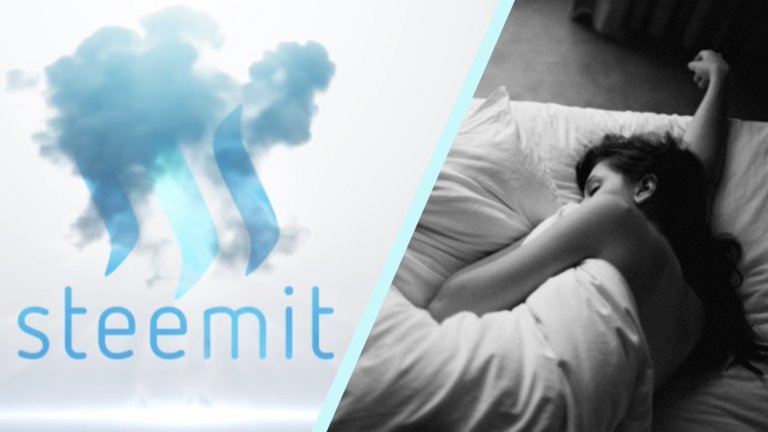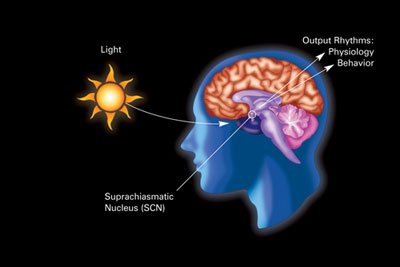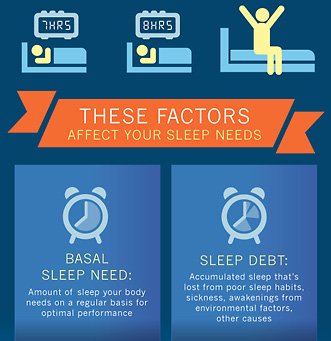
The average person sleeps for 25 years of their lifetime.
This means that we spend about one third of our lives asleep.
We go to sleep every night, without thinking about it, but why is sleep actually so important for our bodies?
To get to know the science of sleep, we have to answer several different questions.

Why do we even sleep?
When you think about it, it's been pretty dangerous for our ancestors who had to live in the wild to lay down and sleep for several hours a day, totally unprotected.
Even until today, there are many different theories as to why we sleep, but this is a question that scientists are still researching and arguing about!
The most popular theory is that we sleep to restore ourselves.
A very important part of this is so-called Brain Plasticity.
During the day, we experience so much - all our senses are being flooded with information.
At night, our Brain saves and memorizes important events, while selecting others that won't make it into our long-time memory.

What triggers sleep?
Obviously, exhaustion is the most simple answer and has something to do with our natural desire to sleep, so that our muscles and tissue can restore!
Light is a very important factor that triggers sleep.
The supra-chiasmatic Nucleus, a small cluster of cells inside our Hypothalamus, is very sensitive to light. When its dark, hormones like Melatonin are released that make you feel sleepy - and the other way around. When it's light, hormones like Cortisol that make you awake are being released.
Scientists suggest that there are other factors as well - but research isn't finished yet.

How much sleep do we need?
You might heard this a thousand times before, but yes, 8 hours of sleep every night is recommended for an adult.
Researchers have tested how 4 hours, 6 hours or 8 hours of sleep affect us.
The group of participants that had 8 hours of sleep at night over the course of several weeks performed very well and was completely healthy.
The ones that had only 6 hours of sleep had a similar reaction time to someone that's drunk!
And the participants who only had 4 hours of sleep each night had a delayed reaction time and major concentration issues.
Also, the concept of Sleep Debt influences how much sleep we really need.
This theory states that a few nights of good sleep can make up for some nights where we didn't get enough sleep. So sleeping for 10+ hours after an all-nighter is totally normal and will help your body restore totally.
Only when sleep deprivation lasts for weeks or months, you won't be able to make up for it by sleeping more afterwards!

What happens in our body if we don't get enough sleep?
Sleep deprivation makes our Amygdala more alert than normal - this is the part in our brain that tells our body to be prepared for danger. This also shuts down the pre-frontal cortex, the part in our brain that makes us think logically.
This means that sleep-deprivation makes us extremely anxious and lessens our concentration - our body is so alert that even the slightest disturbance like a car that drives by loudly can totally throw us off.
After several days of sleep-deprivation, the effects get much worse - our speech-control and memory decrease, and even hallucinations may appear.

Images: (1), (2), (3), (4), (5)
- Instagram -

© Sirwinchester
Sleep is one of the most overlooked thing we can do to improve our health, especially if you have an active lifestyle.
so true!
Unfortunately, most people value their work (=success) over sleeping and therefore contributing to their own health
I definitely dont get enough sleep, although I wish I did!!
I love waking up after a long and good sleep, you feel so refreshed
definitely. A good sleep is the key factor to a successful day
isn't it crazy that we spend so much time asleep, yet it's still not fully researched yet. the human body still remains a mystery (at least partly)
totally agreed. Scientists are still not sure what EXACTLY happens in our brains when we go to sleep!
very interesting, thanks for sharing. I didn't know sleeping was that important for our bodies
glad you enjoyed it!
Some also say that it is the best time to shed weight, provided the correct diet is also followed.
I've heard about that too, very interesting
With less sleep your body can not regulate insulin properly and has trouble processing the fats from your blood, so it stores them instead.... Sleep well.
the longest I've tried to go without sleep was 3 days (2 nights).. after that I slept for 18 hours straight hahaha. sleep debt definitely is a thing!
Yes I've experienced that too. The body needs some time to get back to normal health and normal sleeping patterns after sleep deprivation like that!
I loooooove sleep!
And as a kid we all used to hate sleep (or naps) ^^
I think everybody did - and now everybody regrets that ;)
I had to go with 4 hours of sleep for a while during exams, I always felt so drained! I feel like the time that you gain by sleeping less is actually wasted because you function so much slower.
that's a good point.
Especially when you need to be focused, it might be wise to get 8 hours of sleep instead of studying last minute and then being tired and performing badly!
I am personally fine with 6hours (sometimes 5) per night. I must be part of the tails of the distributions, since I guess you are discussing in terms of average (which means you have people under and above the average).
yes, 8 hours is definitely not needed for everyone.
I know someone who goes with 4 hours of sleep every night and is perfectly healthy and not tired at all!
That's a great benefit for you, enjoy it
I am, don't worry :D
Thanks for sharing, this definitely is an issue I have to work on!
you should try it and see how it affects your health & mood!
I used to be able to sleep great until I went to Iraq with the National Guard in 2004. Ever since then, I've had the whole "sleep with one eye open" thing going on.
I also have another problem which is sleeping for 2-3 hours and then waking up. It makes me very tired throughout the day. Luckily I work from my home so if I want to take a nap during the day I can.
wow, thank you for sharing your story.
Naps should definitely be helpful to you. Maybe you should see a sleeping expert as well, he might be able to give you some more advice.
Wishing you all the best!
Great information again!
In fact, it is exactly the opposite. What triggers sleep is darkness, and especially the absence of blue wavelength in light.
This is a real problem for over-connected people like us today, because all our electronic devices use led light which is mainly in blue wavelength.
Brain requires at least one hour before starting to produce melatonin after being exposed to blue light.
If we want to have a good sleep, we need to stop watching TV, computer or phones/tablets one hour before going sleep.
Bluelight filters can be helpful.
True. I use f.lux on all my devices for this purpose.
Highly recommended and so comfortable.
https://justgetflux.com/
There's a lot of sleep deprivation experiments made on animals, with the resultat of animals dying after 6-8 days of sleep deprivation due to damage of alimentary track . The brain wasn't damaged at all.
In fact it's very well known that the brain is in fact even more active when sleeping.
So, the main theory about sleep nowadays is, during the day the brain is "computing" signals from outside world, at night it switches to computing signals from inner organs, which signals were "neglected" during the day.
I have a particular fascination with sleep and the mystery that still surrounds it. This is partly due to my having a sleep apnea. I have even spent nights in the "Sleep Centre" of the hospital plugged into a bunch of monitoring machines. I also read this interesting little piece on steemit, regarding alcohol and sleep. I hope you dont mind me sharing it. Cheers
https://steemit.com/health/@bigsambucca/why-i-have-a-terrible-sleep-after-drinking-alcohol
Very good post!
Reading this made me want to sleep immediately. I definitely need to sleep more. Especially earlier. Nice post bro upvoted
I've come to believe that everyone's ideal number of sleep hours is different, based mostly on how healthy they are. A very healthy person needs less sleep and vice versa. Plus the quality of sleep plays a big role too. 8 hours of sleep on a stack of plywood probably wouldn't be as effective as 5 hours sleep on a high quality mattress in a pitch black room at the right temperature.
i love this. thanks for sharing